What are the triggers for global conflicts, and what can we do about them?
… in contexts of fragility: education for kids, jobs for adults and security for communities. …
… in contexts of fragility: education for kids, jobs for adults and security for communities. …
“We didn’t expect this coming. I wake up every morning, having no idea how we will survive the day.” Four years ago, Zainab’s home burned down amidst fighting in western Libya. She and her family …
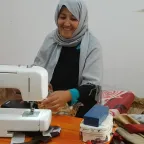
Before a distribution can take place, everything must be unloaded on site. Local volunteers gave invaluable help to the Red Cross team. CC BY-NC-ND / ICRC / James Daniel Waites “They fought all the …
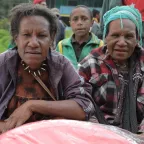
You don't need to travel far from Kiev's main thoroughfare with its smart boutiques, loud music and strolling crowds to find the other Ukraine. And this is not, as you might think, the desperate …
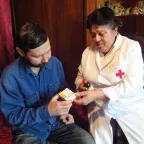
The second humanitarian hub event held in Tegucigalpa, Honduras, as part of the Voices to Action campaign aimed to complement the online platform created to discuss ideas and thoughts about today's …
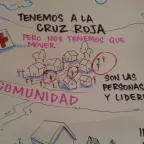
"During Typhoon Yolanda (Haiyan), we were told to evacuate, so we moved to my in-law's house up the hill. When it was over, we came back and our house was gone, completely washed away. The same thing …
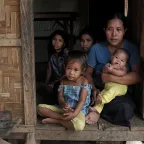
27th session, Human Rights Council The ICRC is greatly encouraged by the interest taken by the Human Rights Council and its members in the issue of detention. It would like to take this opportunity …
… for alms or at best to a lifetime of menial jobs. My case has been quite the opposite, all …
The year 2021 saw desperation, upheaval, pandemic concerns, and reasons to smile. Increased conflict in Ethiopia and a volcano’s eruption in DRC meant increased suffering. People in Syria sought to …
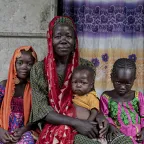
Water is life Clean drinking water is a priority in Rakhine. Communities displaced by the recent violence have been digging the ground to find water, using nearby ponds, and seawater for cooking and …
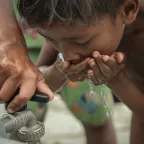
Try one of the following resources:
Created in 1863, the ICRC library, alongside the ICRC archives, provides an indispensable documentary reference on the organization itself and international humanitarian law.
International humanitarian law is based on a number of treaties, in particular the Geneva Conventions of 1949 and their Additional Protocols, and a series of other instruments.
Customary international humanitarian law consists of rules that come from "a general practice accepted as law" and that exist independent of treaty law.